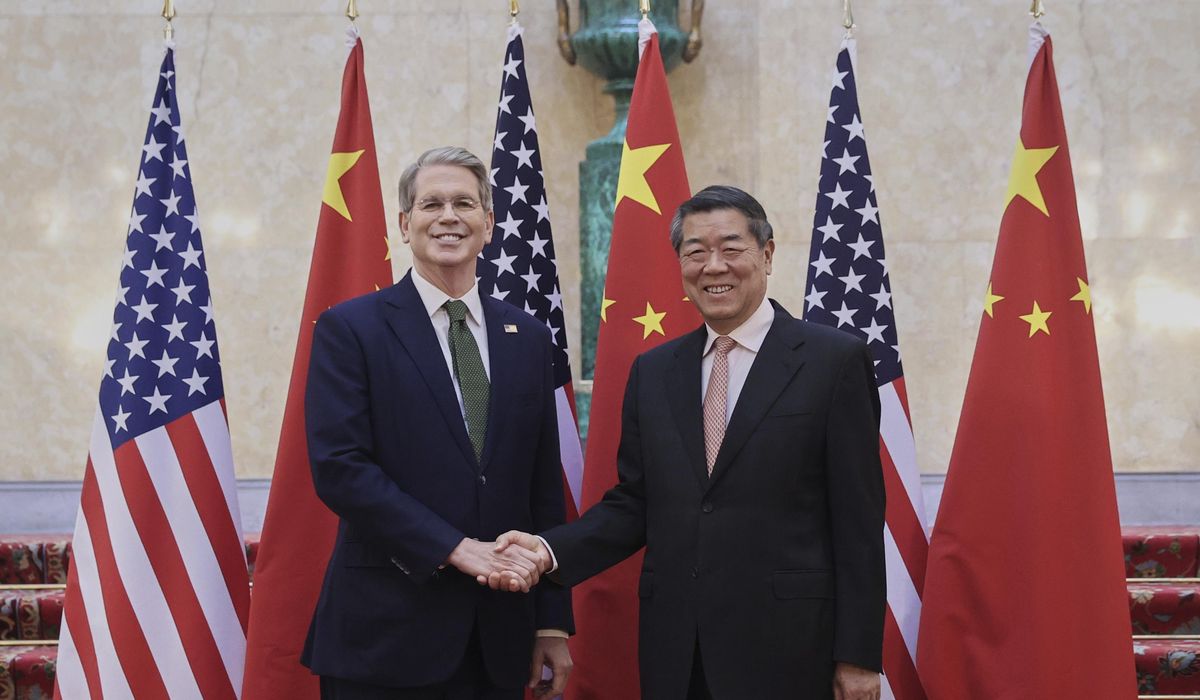


U.S. negotiators said Wednesday they reached a “handshake” agreement to loosen China’s restrictions on rare earth minerals, but they must get President Trump’s approval before implementing the terms.
Commerce Secretary Howard Lutnick told reporters in London that the framework was built on May negotiations in Geneva and a recent phone call by Mr. Trump and Chinese President Xi Jinping.
“President Trump’s got to approve it,” Mr. Lutnick said “The Chinese side has to take that back to their president. Once that’s done, we will be back on the phone together and will begin to start to implement this agreement.”
Mr. Trump seemed enthused by the agreement, writing on Truth Social that the U.S. would get much-needed minerals.
“Full magnets, and any necessary rare earths, will be supplied, up front, by China, likewise, we will provide to China what was agreed to, including Chinese students using our colleges and universities (which has always been good with me!),” he wrote in all caps.
“President XI and I are going to work closely together to open up China to American Trade. This would be a great WIN for both countries!!!” Mr. Trump added in a separate post.
The Chinese side will likely get relief from U.S.-imposed export controls on high-tech goods.
While the full details were unclear, the Chinese side echoed U.S. comments.
“The two sides had a candid and in-depth dialogue, exchanged views in depth on economic and trade issues of mutual concern, reached a principled consensus on the framework of measures to implement the important consensus reached by the two heads of state on June 5 and consolidate the results of the Geneva economic and trade talks, and made new progress in resolving the economic and trade concerns of both sides.” the Chinese commerce ministry said on its website.
Treasury Secretary Scott Bessent is scheduled to testify on Capitol Hill on Wednesday, so he might fill in more details.
Both sides met for two days in London to maintain a weekslong trade truce. Tensions stem from Mr. Trump’s “Liberation Day” tariff announcement in April.
A trade court recently concluded that Mr. Trump overstepped in imposing sweeping levies on other nations, though an appeals court put the ruling on hold while deeper legal issues were litigated.
Unlike other countries that came to the negotiating table, China retaliated against Mr. Trump’s tariffs by imposing hefty levies on U.S. goods, sparking a trade war.
A de-escalation meeting in May knocked down sky-high tariffs from both sides. The U.S. is charging a 30% tariff on Chinese goods, and China is putting a 10% tariff on American goods that cross its borders.
Still, the U.S. side said China was keeping a tight grip on rare earth minerals it needs for magnets in fighter jets, automobiles and other equipment.
China, meanwhile, was angered by U.S. export controls on semiconductors that its tech companies need, leading to the London talks.
• Tom Howell Jr. can be reached at thowell@washingtontimes.com.
